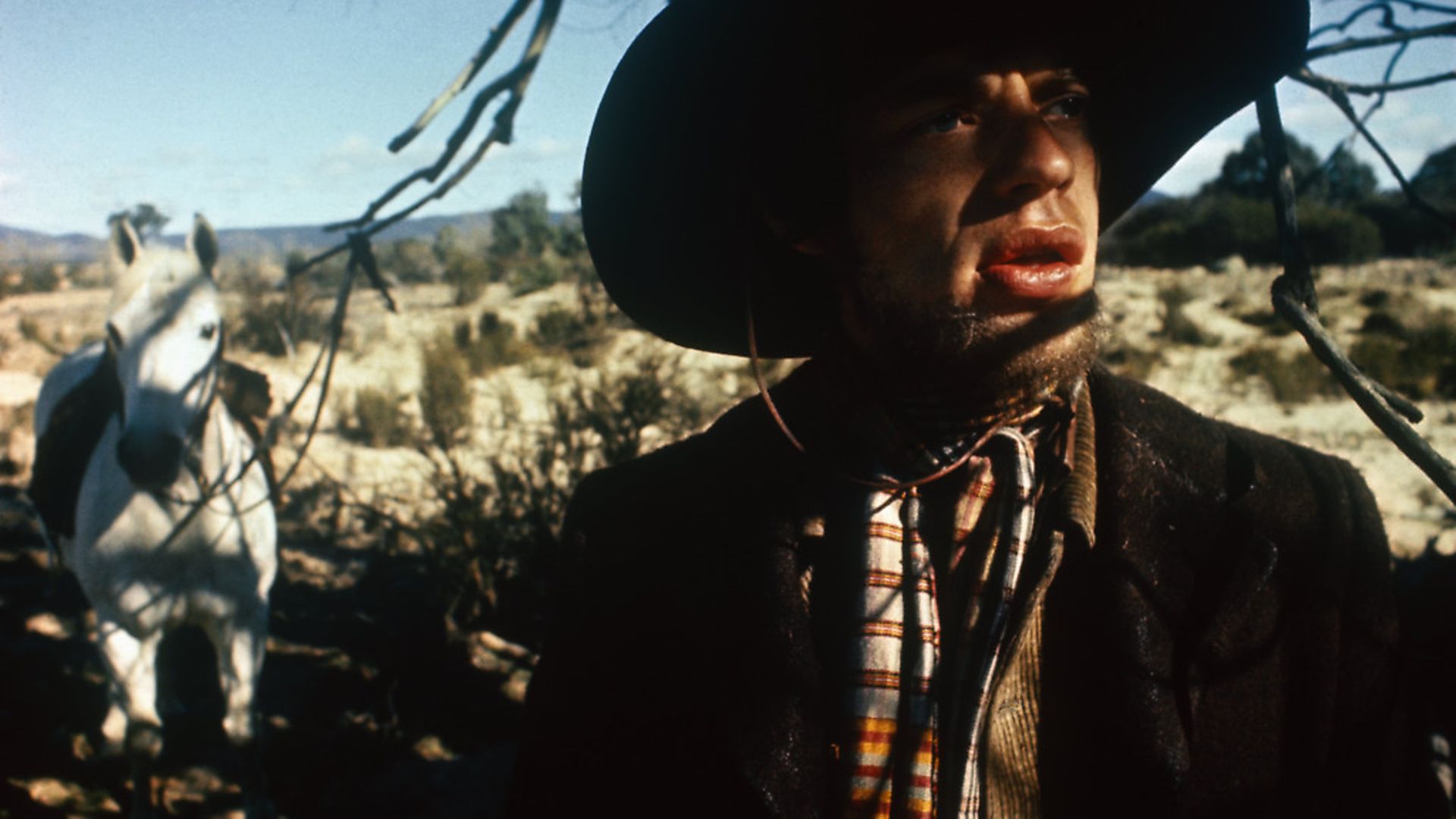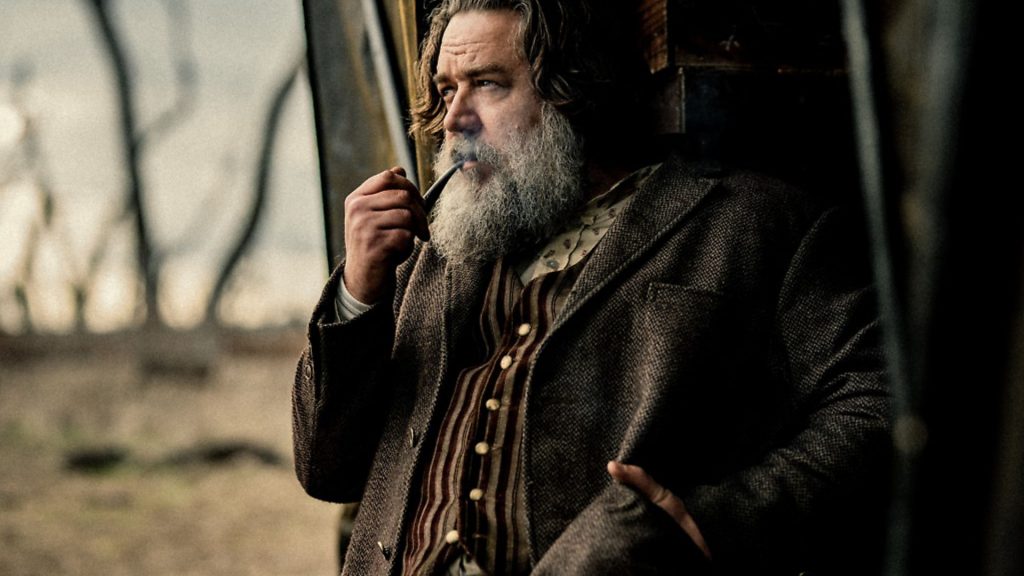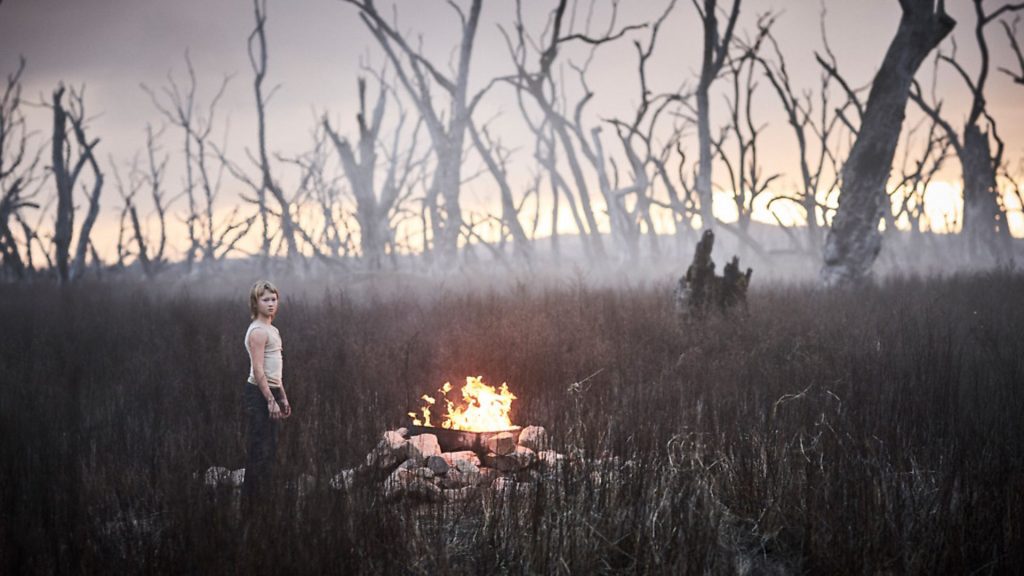
As another portrayal of Ned Kelly arrives on the big screen, RICHARD LUCK explores the murderous legend’s enduring appeal.

One of the great myths about Australia is that it doesn’t have any history. Having been populated for the better part of 50,000 years, the Great Southern Land actually has no end of history, much of it to be found in its rocks and in the oral tradition of its indigenous people.
If, however, you’re someone who considers Australian history to have commenced with the arrival of Cook or with confederation, then you can see why certain people and particular incidents have assumed great importance.
So it is that Ned Kelly is championed as a hero – even a revolutionary – by some even while he’s considered a thief and a murderer in the eyes of the law.
The personification of Aussie mateship and a fine example of Australia’s love of the larrikin, Kelly enjoys a reputation Down Under somewhere between Robin Hood and Billy the Kid.

In the 140 years since his death, there have been plays about Kelly, poems, TV programmes, motion pictures and any number of novels. Of the latter, Peter Carey’s Booker Prize-winning True History of the Kelly Gang has now been brought to the big screen by Justin Kurzel, the South Australian responsible for the superb true crime drama Snowtown, an ambitious staging of Macbeth and the – frankly shocking – Assassin’s Creed.
Starring 1917’s George MacKay (himself the son of an Australian) as Ned, alongside Russell Crowe, Charlie Hunnam, Nicholas Hoult, Kurzel’s actress wife Essie Davis – best known to international audiences for her to-the-edge performance in The Babadook – and Nick Cave’s son Earl, True History of the Kelly Gang isn’t overburdened with fact. Rather like Carey’s novel, this is but an alternative take on the family legend, albeit one informed by alternative cultures and the Jerilderie Letter, a screed Kelly dictated to his lieutenant Joe Byrne, outlining his grievances against the forces of law and order. Peter Carey had the missive to hand whenever he was writing the novel, ensuring that his prose possessed the same poetry and eccentricity as Ned’s.
While Kelly’s unique grasp of the English language is on show in Kurzel’s film, his True History flirts with surrealism, punk culture and pretty much any device that yanks Ned’s story from the realm of history so it can be refashioned as psychedelic myth.
It’s an ambitious approach and one that’s upset fans of earlier, more faithful assaults on the story. Then again, since the tale of the Kelly family and their place in Australian history differs depending upon who you’re asking, Kurzel has as much right to approach the tale from a new direction as the audience have to reject it.
Kurzel – currently shooting the Second World War drama Ruin with Margot Robbie – is by no means the first filmmaker to wrestle with the Clan Kelly. Since 1906’s The Story of the Kelly Gang, upwards of 11 directors have taken a whack at the boy from Beveridge. Some have played the legend for laughs, others have taken it deadly seriously. That all have come up short (see “The Gang’s (Almost) All Here”) says less about their frailties as filmmakers than with the problems inherent in the Kelly myth – just how do you turn a cop killer into a symbol of independence and freedom?
The saga of Edward Kelly began in December 1854. Ned’s father, John ‘Red’ Kelly had arrived in Australia clamped in irons – he was sent to Tasmania from Tipperary in 1841 after pinching a couple of pigs.
After relocating to Victoria, John married Eileen Quinn, sired eight children – Ned was the third eldest – served six months in jail and then died. As the oldest male in the Kelly household, huge responsibility was heaped upon the shoulders of the then-12-year-old Ned.
Given his old man’s larrikin ways, it was little surprise that, in his efforts to make ends meet, the younger Kelly fell in with the infamous bushranger Harry Power. Less shocking still was the fact that, before he turned 20, Ned Kelly had served two jail terms, the first for assault, the second for stealing livestock.
A risky but remarkably profitable pastime, Ned took to thieving horses upon his return to civilian life.
Since Harry Power was himself now behind bars – due to Kelly’s treachery, the veteran outlaw believed – Ned ran with the Greta Mob, later to be known as the Kelly Gang. His partners-in-crime included his brother Dan, his best friend Joe Byrne and young Steve Hart. And since two of her boys were at the head of the firm, Ned’s mother Eileen was also involved in the gang’s activities.
Indeed, it’s widely believe that it was Mrs Kelly who assaulted Constable Alexander Fitzpatrick after the policeman set out to arrest her lads in the spring of 1878. For striking an officer of the law, Eileen Kelly received a prison sentence which ensured that she’d never again see Ned alive.
It’s what occurred in the wake of the Fitzpatrick incident that secured Ned Kelly’s place in infamy. Determined not to return to jail, the gang rode off into the Wombat Ranges, pursued by nine policemen. At Stringybark Creek on October 26, 1878, the Kelly boys, together with Byrne and Hart, ambushed Constables Lonigan and McIntyre, murdering the former and threatening to kill the latter if he didn’t reveal the location of his fellow officers. Upon encountering Constables Kennedy and Scanlan later the same day, the Kelly Gang shot and killed the two men. They might also have murdered Constable McIntyre had he not improvised his escape on horseback.
With the blood of police officers on their hands and McIntyre about to blow their cover, Kelly’s mob now added robbing banks to their rap sheet. Besides holding up a branch of the National Bank in Euroa in December 1878, the gang crossed the border into New South Wales in the New Year where they’d pull off their most audacious stunt in the country town of Jerilderie.
Starting things off by laying siege to the local police station and taking two constables hostage, the Kellys then paid a visit to the Royal Hotel to secure lodgings, after which they lifted upwards of £2,000 from the bank.
In return, Ned Kelly handed a bundle of papers to one of the clerks, Edward Living, and ordered him to deliver it to the Jerilderie and Urana Gazette.
This was the Jerilderie Letter, a 56-page, 7,500-word long treatise that charted Ned’s descent into criminality, the blame for which he laid at the feet of Victoria’s lawmen, whom he memorably describes as “a parcel of big, ugly, fat-necked, wombat-headed, big-bellied, magpie-legged, narrow-hipped, splaw-footed sons of Irish bailiffs or English landlords”.
With his crie de coeur/massive whinge now in the hands of the nation’s press, Ned Kelly made excellent use of his network of friends and associates, keeping under the radar while the reward for his capture rose to a staggering £8,000. Keen to claim both the money and Kelly’s scalp, Captain Frederick Standish – in a move reminiscent of the men entrusted with bringing Butch and Sundance to book – took to touring the colonies in a special train, complete with armed officers and mounted policemen.
Speaking of the American West, Ned and Dan’s sisters Kate and Margaret Kelly floated the idea of the gang fleeing to California. The boys also contemplated riding across country to ply their trade in Queensland.
In the end, everything came to a head in Glenrowan in June 1880. With Standish and his strike team bearing down on the small Victorian town, the Kelly boys proceeded to take most of its citizens hostage. Then, when the lawmen opened fire on their hotel hideout, Ned and Joe Byrne donned suits of armour.
The extraordinary sight of Ned Kelly walking into the police gunfire sporting a visor and breastplate while wielding his pistols in the sort of thing one might scoff at had a novelist concocted it.
However, there was to be no happy ending to the Kelly story. While Joe Byrne died from gunshot wounds and Dan Kelly and Steve Hart surrendered, Ned was shot in the one place he’d left unprotected, his legs. He was subsequently captured, tried, then executed. As he approached the noose on November 11, 1880, he spoke his last words: “Such is life.”
It’s only when revisiting Ned Kelly’s story that you understand the ongoing fascination with the man and his myth – it’s because the tale is so bloody exciting. Okay, so he was less a revolutionary and more a gun-wielding psychopath but that doesn’t make his short, colourful life any the less compelling. It’s rather like with Billy the Kid, a young man who packed a lot into a few short years without ever being the mixed-up teen portrayed by Paul Newman in The Left-Handed Gun or Kris Kristofferson’s freedom-preaching balladeer in Pat Garrett and Billy the Kid. Incidentally, Rudy Wurlitzer’s screenplay for that film originally contained a scene – based on fact – in which the Kid and his fellow Regulators ride into the town wearing dresses. It was an act of bravado that the Kelly Gang also embraced, and its recreation provides Justin Kurzel’s movie with one of its most memorable moments.
“Nothing scares a man like crazy,” quips Earl Cave’s Dan Kelly before the boys break open the dressing-up box. And while plenty of films eclipse True History of the Kelly Gang, even the crazy sing the praises of the ballad of Ned Kelly.









